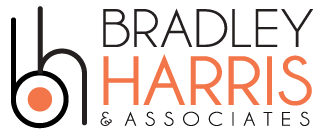Interview Tips
Face-to-Face Relationship Skills Series: What Did You Say?
Even if your non-verbal communication skills are stellar, you can still bomb a face-to-face interview if you don’t speak clearly and with confidence. If the interviewer is struggling to understand you or must ask you to repeat yourself because your words aren’t coming across clearly, you can give the impression that you lack confidence or that you’re not a skilled communicator.
Clear communication impacts likeability
A 2011 study conducted by researchers at Harvard University found that what you say actually matters less than how you say it, particularly when it comes to likeability. In the study, participants watched a political debate in a series of interviews.
“In the first video, the individual answered the question directly and well; by the third video, he answered the question directly, but inarticulately,” explains a synopsis of the study at The Opia Blog. “The response from the study showed that people liked the individual answering the question less when he did so inarticulately.”
It’s not what you say, but how you say it
While being able to respond appropriately to questions in a face-to-face interview is important, being able to articulate your responses clearly is often more important than having the “right” answers.
Talking too softly, too quickly, or using local slang is important to remember in articulating clearly who you are and communicating your message. Using pauses, such as “Um” or “Like” can be a big distraction for the person trying to listen and understand what you’re trying to say.
Think before you speak
The key to overcoming these tendencies is multi-fold. First, take a moment or two to think about what you’d like to get across before you start speaking. Make sure you listen fully to the question before formulating your response, and ask for clarification if needed.
Repeat the question back to the interviewer before giving your response in order to re-affirm your understanding, particularly if you’re not certain what is being asked. Give the interviewer an opportunity to clarify the question before you give an off-target response that may create confusion.
Not only does this actually verify the specific question, but it can buy you some valuable time to formulate your response clearly in your mind before communicating it to the hiring manager.
Don’t knock mock interviews
It’s also a good idea to practice sharing information about your background, skills, and interests with friends or family before a face-to-face interview. This helps you identify parts of your messaging that don’t come across clearly or need some fine-tuning. By practicing ahead of time, you’ll head to your face-to-face interview armed with a clear, concise message that you can communicate eloquently.
Mock interviews are an excellent way to prep for a face-to-face interview. For some people, a mock interview with someone you’re close to is actually more uncomfortable and nerve-wracking than talking about your skills and expertise with a stranger. For others, practice sessions with friends and family don’t come close to producing the same level of anxiety as the real deal. But in either case, these practice sessions are valuable for fine-tuning your messaging and clearly conveying the information you want your future employer to know about you.
These tips aren’t new. They’ve been cornerstones of effective communication for many years. But addressing these common communication issues and reminding yourself of best practices in effective communication is important, because it’s so easy to get off track and revert to the more laid-back communication styles we tend to use in our personal lives. When you focus on communicating your message clearly and articulately, you can score major points even if your message itself isn’t earth-shattering.


